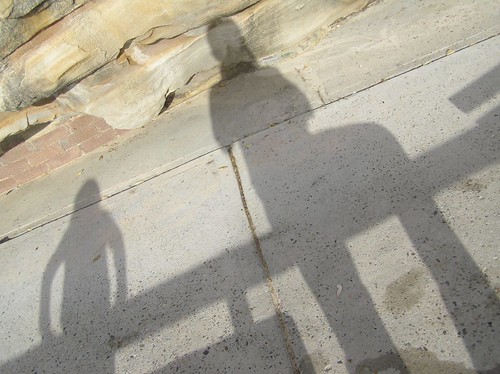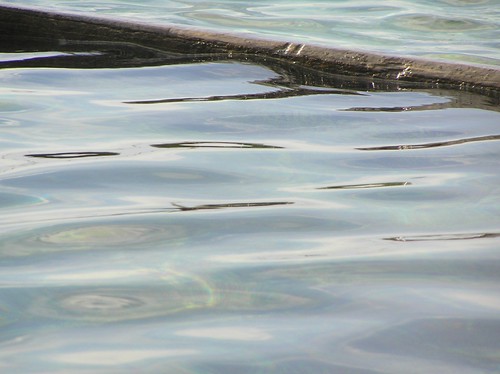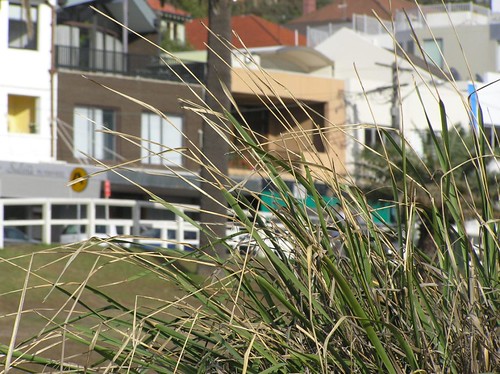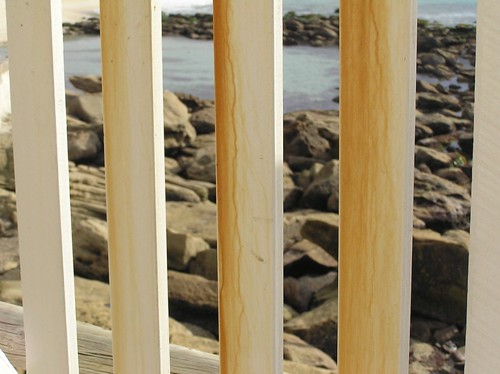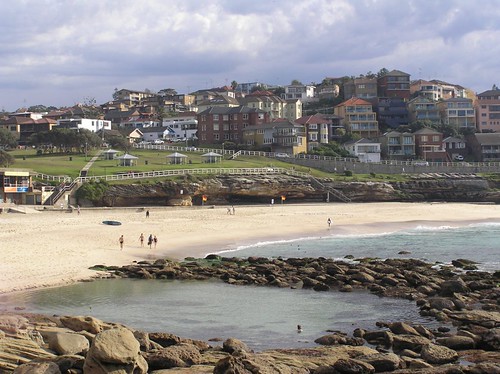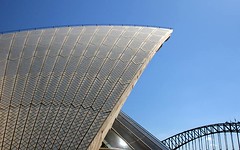Australian Film Industry
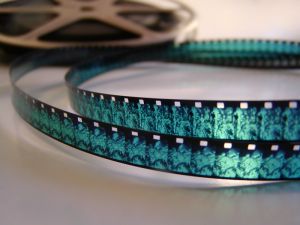
I made some comments in passing below about what many see as the sick state of the Australian film industry. Much has been said about this in the last few years. Apparently, the industry is producing on average about 16 to 19 films per year, down from an average of 30 in the 1990s and even more in the 1980s (see
here).
Here's my take on it. I don't think it's so much a case of the Australian film industry being in a bad state, as it having almost "merged" with what is really now a global film industry.
Think how many Aussies are making it big in Hollywood these days. The Oscars red carpet is littered with antipodean talent every year. It's not just the actors (
Our Nic,
Our Russ,
Our Heath,
Our Cate,
Our Geoffrey just to name a few) but also the directors (think
Peter Weir,
Baz Lurhmann,
Phillip Noyce) and a lot of the behind-the-scenes people who do the cinematography, special effects, make up, costume design etc. Virtually every year now an Australian cinematographer is nominated for an Oscar, and
this year an Aussie won. You didn't see that in the 1980s.
And think how many Hollywood productions get made in Australia (
Mission Impossible,
Matrix,
Star Wars etc).
You could think of this as Hollywood swallowing up our local talent. But another way of looking at it is that the locals are taking on Hollywood. Indeed, the term "Hollywood" is really a misnomer - it really is a global industry, with many films being financed from multiple sources and involving cast, crew and shooting locations from round the world. And Australia's right there in the thick of it.
More thoughts to come later ...
Seen at Bronte, Saturday morning ...
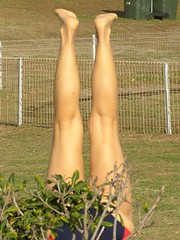
Oyster Farmer

Saw this film on the weekend on DVD.
Not bad, but a bit disappointed. The highlight was definitely the beautiful cinematography of the Hawkesbury River. Though having said that, I thought the director's comments in the DVD extras about "the river being a character" were a bit much - I'm a bit tired of these "landscape as character" references, ala The Outback in Japanese Story (another yawn of an Australian film, despite the hype) etc etc.
The acting was OK, but I just found the story a bit flat. Got some good reviews, so maybe I'm missing something.
A few reviewers have said this film suggets some hope for the sick state of the Australian film industry. Not sure about that. Though don't give up hope on the Australian film industry - there were some excellent Australian films last year (the quirky and original Look Both Ways and the haunting Little Fish, both of which were brilliant).
Da Vinci Code - the Movie

So the movie has now hit the cinemas. It's not getting
crash hot reviews. But what can be expected from what really is a bit of an airport thriller (or, as this writer suggested, a
bus novel)? Dan Brown was never going to win the Pulitzer Prize for this work, and looks like Ron Howard will have to wait his turn for his second Oscar.
Still reading the book and will post more thoughts, though there's not much to say that hasn't already been said by countless others. I'm just up to the chapter (chapter 55) where the character Sir Leigh Teabing reinvents the whole historical basis of Christianity. Notwithtstanding all the cries of "it's only fiction!", there's no doubt in my mind that the "history" recounted in this particular chapter was intended to be read and taken as fact.
Revolving door etiquette
This is one of the vexing questions of life in a city office tower - what exactly is the correct etiquette when entering and exiting revolving doors? Is it appropriate to jump in for a ride with another person in the same little quarter of the revolving door? Or should entries and exits be spaced so that only one person is present in each quarter?
In my view, if the other person is someone you know and the space is large enough, I think it's OK for both of you to take a ride together. However, if it's a stranger, no matter how big the revolving door, it's far too cosy a space for it to be polite for both of you to hop in together - wait your turn!
Da Vinci Code: Fact or Fiction?
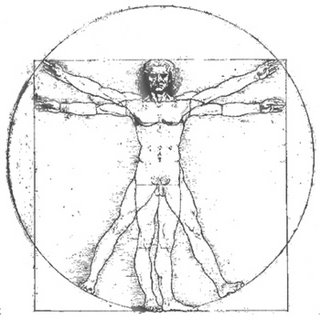
Ron Howard gives
his view:
... the Oscar-winning director of A Beautiful Mind rejected the notion that his latest film should carry a disclaimer - as requested by Opus Dei - stating what he said was already obvious.
"This is a work of fiction that presents a set of characters that are affected by these conspiracy theories and ideas," Howard told the Los Angeles Times. "Those characters in this work of fiction act and react on that premise. It's not theology. It's not history. To start off with a disclaimer … spy thrillers don't start off with disclaimers."I've finally succumbed to the hype and have just bought the book and am ploughing through it.
My initial impression? It is not obvious to me that the book is solely a work of fiction. Contrary to what Ron Howard says, the novel does purport to contain both theology and history. And Dan Brown seeks to give the impression that the novel is based on fact.
This book does more than just seek to entertain. It seeks to influence people's hearts and minds about matters of history and religion. And it works. A friend mentioned to me the other day that he had just assumed that what the book had to say about Christianity was true.
I'll post further thoughts as I continue to read.
Wrongful life?...
.... High Court says
no.
"There is no present field of human learning or discourse, including philosophy and theology, which would allow a person experiential access to non-existence, whether it is called pre-existence or afterlife. There is no practical possibility of a court (or jury) ever apprehending or evaluating, or receiving proof of, the actual loss or damage as claimed by the appellant. It cannot be determined in what sense Alexia Harriton's life with disabilities represents a loss, deprivation or detriment compared with non-existence. "Justice Susan Crennan, High Court of Australia,
Harriton v Stephens [2006] HCA 15 (9 May 2006) para [253].
Of course, there is
someone who has had experiental access to the afterlife, not that that would necessarily have assisted the court in this case in comparing life with non-existence ...
Born again: miners free at last*
What fantastic
news from the Beaconsfield mine this morning.
A quick survey of other major world news sites (
NY Times,
BBC,
NBC,
The Times,
The Globe & Mail) shows that this is a major news headline right round the world today.
We love to hear a good story of rebirth and salvation!
* NB: This was the title of the SMH article to which I have linked in this post, but subsequently during the day the title changed. I quite liked the original title and wish they'd kept it!
Love this city ...
On a slightly brighter note...
Just been for a jog over lunch time. When I came round the bend of Mrs Macquarie's Chair and turned and faced the sparkling, sunny city skyline with the gardens in the foreground, and the Opera House and Bridge to the side, all against a backdrop of a perfect autumn blue sky, it was hard not to think I'm blessed to live in the most beautiful city in the world. Simply magic ...
Of course, it ain't got nothin' on this city, which has the added advantage of a bit more racial harmony to boot.
"Crash", race & choosing a school

"Crash" surprised everyone this year when it came from behind and won the Best Picture Oscar.
I saw Crash and thought it was a brilliant movie - amazing acting, beautiful shooting, sharp writing, well paced direction.
I think one reason for the movie's success is that its interlocking stories of racism and prejudice ring true, because we know that deep in all our hearts, even in the most seemingly respectable of people, lies a fear and suspicion of people of another colour or culture. Black and White, Eastern and Western, all are guilty of fearing each other, and it's not just a simple story of the oppressed vs. the oppressor.
This bubbles to the surface when living in a multicultural city such as Sydney and it comes time to choose a school for your children. There are schools that people of Anglo background avoid. Why? Because, for example, 80% of the school might come from a particular ethnic background. When asked why that's a problem and why it matters if an Anglo kid goes to such a school, the typical response is, "Well it's OK if it's a mix of cultures, just not if there's one culture that dominates."
But isn't that what other kids have to endure at schools where the Anglo kids are in the majority? And don't we just expect them to "assimilate"? If it's good enough for "their" kids, why isn't it good enough for "our" kids, the "Australian" kids?
What is "Australian" anyway?
I don't say any of this in a judgmental way. It's easy to get on your politically correct moral high horse and argue the theory of all this, but when you're thinking about your own kid it's easy for the very same prejudices to bubble to the surface.
And that was exactly what was captured so well in "Crash". Whether it's LA or Sydney, you don't have to dig very deep to find an undercurrent of racism.
 I made some comments in passing below about what many see as the sick state of the Australian film industry. Much has been said about this in the last few years. Apparently, the industry is producing on average about 16 to 19 films per year, down from an average of 30 in the 1990s and even more in the 1980s (see here).
I made some comments in passing below about what many see as the sick state of the Australian film industry. Much has been said about this in the last few years. Apparently, the industry is producing on average about 16 to 19 films per year, down from an average of 30 in the 1990s and even more in the 1980s (see here).